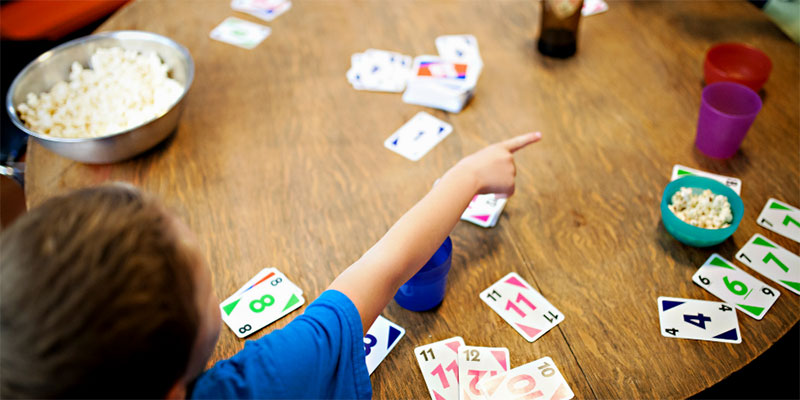Family Fun
The Best Math-Based Games

How many times have you used math today? Math is all around us, we need it for everything from budgeting our expenses to baking cookies! While as adults we use math in all sorts of fun and engaging ways, learning math for our kids can be much less exciting.
There are two forms of math: pure math and applied math. Pure math refers to equations and is the primary way that most kids learn math. Applied math is math put to work, and is most often represented in the classroom as word problems. Children need this kind of math training to build a solid foundation, with the goal being to build a foundation of math literacy and mental math. Through pure math practice, you know that 2 + 2 = 4 and 5 x 5 = 25 without having to perform any calculations.
But there are many other ways to support this education to keep children engaged in their studies. Non-computational math added to a math program can yield outstanding results by using real-world applications of basic math concepts. Skip counting (which is the term for number sequences like 5.10.15.20...) can be taught alongside telling time. What is an analog clock but a wheel of skip counting? Studying currency builds strong skills in 2-digit and 3-digit addition, as well as setting the table for multiplication. If your child knows that 4 quarters is the same as 1 dollar, they also know that 25 x 4 = 100. We've discussed before how the kitchen can be a great resource for teaching real-world math skills. While this is great for housekeeping, it's not always the most fun option.
Playing games that heavily involve math has been proven to engage children's interest in math as well as help with retaining knowledge. Let's look at some fun options for incorporating math into your child's playtime.
Card Games
Is there any item more versatile than a deck of playing cards? With 13 cards per suit representing the numbers 0-12, a deck of cards can teach kids math skills from the age of 3 all the way into learning their multiplication and division tables. From number identification and matching games, to War, Solitaire, and Go Fish, to using them as flashcards in math-based challenges, the possibilities are endless.
Video Games
As it turns out, video games don't rot your brain after all! Well, at least not all video games. Studies have shown that students who play educational video games see a dramatic improvement in their math scores. There are many great resources to help find games, and we always suggest doing your research before sharing a game with your kids, since there are some less-than-reputable sources of children's content out there. While we do want to limit screen time for our kids, we can still provide them with enriching material when we do let them on those devices.
Board Games
No need to mess with the classics! Board games were how most of us engaged with math, from Yahtzee to Uno to Monopoly to Rummikub, these games build math skills and create happy memories for our kids. There are tons of new games coming out all the time, some specifically designed to be math-based, and others that rely on math skills whether from rolling dice, counting squares, or keeping score. Board games are a time-tested and effective tool when teaching math to kids, with studies showing that the more familiar young children are with board games, the higher math scores they receive.
Now go play!
If you want to build a strong foundation in math for your child, Best Brains teaches computation and non-computation math skills side-by-side with certified teachers to strengthen understanding and retention.


